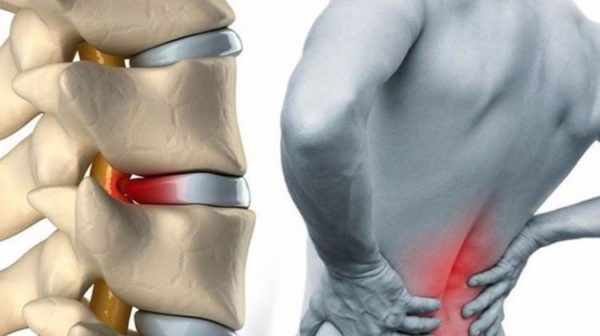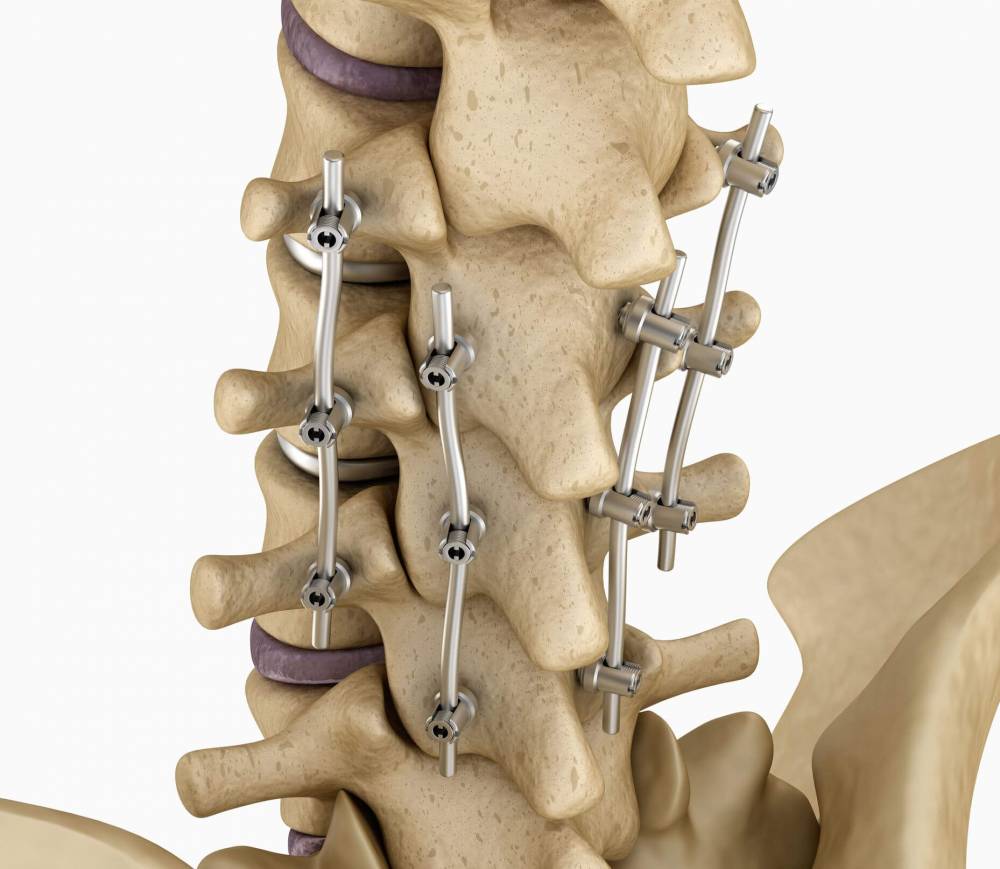What are the causes of nerve and muscle inflammation and which vitamin strengthens the nerves?
Causes of Nerve and Muscle Inflammation
- Overuse of Muscles: Nerve and muscle inflammation can occur due to overuse of muscles. Excessive physical exertion in performing physical activities for extended periods can damage nerves and muscles and cause inflammation.
- Psychological and Physical Stress: The risk of nerve and muscle inflammation may increase with continuous exposure to psychological and physical stress. Emotional stress and tension leading to excessive contraction of body muscles can cause inflammation in nerves and muscles.
- Injuries and Traumas: Various injuries and traumas can cause damage to nerves and muscles, leading to inflammation. These injuries may include bruises, fractures, stretches, and muscle strains. Such injuries lead to increased inflammation and can result in nerve and muscle damage.
- Chronic Diseases: Some chronic diseases such as arthritis and multiple sclerosis may be associated with nerve and muscle inflammation. These diseases affect the functions of nerves and muscles and cause inflammation and pain.
- Improper Nutrition: Nutritional deficiencies and lack of nutrients such as Vitamin B6 can be potential causes of nerve and muscle inflammation. This nutrient deficiency is one of the contributing factors to increased inflammation and nerve and muscle damage.
- Genetic Factors: There may be some genetic factors that affect the health of nerves and muscles and increase the risk of inflammation. Some individuals may be more prone to nerve and muscle inflammation due to genetics and genetic changes.
- Environmental Factors: There are certain environmental factors that can contribute to the development of nerve and muscle inflammation. These include prolonged exposure to extreme cold or heat, chemical poisoning, and exposure to harmful and toxic substances.
Note that there may be other causes of nerve and muscle inflammation that vary from case to case. Individuals experiencing symptoms of nerve and muscle irritation should consult a doctor to determine potential causes and receive proper diagnosis and treatment.
How Do You Know If You Have Nerve Inflammation?
Nerve inflammation can be a serious health condition that may affect many aspects of your body. If you are experiencing any of the following symptoms, you may have nerve inflammation:
- Numbness and Tingling in the Extremities: You may feel a strange sensation of numbness or tingling in your hands or feet. This feeling may be constant or temporary.
- Reduced Sensation and Difficulty Moving Limbs: You may have difficulty sensing things or pain, or you may find it difficult to move your hands or feet normally.
- Sensitivity to Touch: You may find that your hands or feet are very sensitive and become painful upon any touch.
- Balance Disorders: If you find it difficult to maintain your balance, or if you stumble or fall frequently, this may be a result of nerve inflammation.
- Muscle Weakness: When a nerve is inflamed, it can lead to weakness in the involved muscles. You may find it difficult to lift objects or perform some daily movements.
- Low Blood Pressure: In some cases, nerve inflammation can cause a drop in blood pressure, leading to dizziness or fainting.
If you have some or all of these symptoms, it’s important to consult a doctor for an accurate diagnosis and appropriate treatment. Recommended tests, including muscle biopsy, may be conducted to determine the cause and type of nerve inflammation you’re experiencing.
Please note that this information is not a substitute for consulting a specialist. If you’re experiencing any of the symptoms mentioned above, it’s advisable to contact a healthcare professional for a precise diagnosis and suitable treatment.
Where Does Nerve Inflammation Come From?
Nerve inflammations, also known as neuropathy or peripheral neuropathy, are painful conditions that can be unusual, affecting one type of nerve or several at the same time, with treatment methods varying depending on an individual’s condition.
In this article, we’ll outline the most significant causes of nerve inflammations:
- Severe Nerve Compression: Nerve inflammation can occur due to severe pressure on the affected area, leading to nerve damage or inflammation. This pressure may result from a specific injury or sustained pressure on the affected area.
- Localized Injuries: Nerve inflammation may result from localized injuries in the body, where direct damage to the nerves leads to inflammation. Such injuries can be the result of car accidents, falls, or violent sports injuries.
- Specific Medical Conditions: Nerve inflammation can occur due to specific medical conditions that affect one nerve or a group of nerves. These conditions may be chronic diseases like diabetes, multiple sclerosis, or autoimmune diseases.
- Entrapment Neuropathy: Peripheral nerves transmit information from the body’s extremities to the brain and spinal cord. Nerve inflammation can occur when damage to the nerves affects the transmission of this information and its signals, resulting in various symptoms throughout the body.
- Infections Causing Nerve Inflammation: Nerve inflammation may be the result of bacterial or viral infections within the body. Some infectious diseases, such as meningitis and shingles, can cause inflammation in the nerves.
In conclusion, nerve inflammations are a condition that requires accurate diagnosis and immediate treatment to alleviate symptoms and relieve associated pain. Therefore, individuals experiencing symptoms of nerve inflammation should consult a specialist to determine an accurate diagnosis and choose the appropriate treatment plan.
What is the difference between muscle inflammation and nerve inflammation?
Many people suffer from muscle and nerve pain, and although some symptoms may be similar, there is a significant difference between them. In this article, we will highlight the key differences between muscle inflammation and nerve inflammation.
Muscle Pain:
Muscle pain includes inflammation and swelling in the muscles. The pain can be sharp and occur as a stabbing or cramping sensation in the muscle. It often occurs due to muscle strain or excessive use. It may occur after intense physical exercise or as a side effect of medications like cholesterol-lowering drugs. It can be treated with rest, ice application, physical therapy, and topical pain relievers such as warming creams.
Nerve Pain:
It results from inflammation or damage to the nerves. Pain can be sharp or chronic, characterized by tingling, numbness, and reduced mobility. It can result from pressure on the nerves due to inflammation of surrounding tissues, injuries, or other medical conditions. It is usually treated with anti-inflammatory medications, physical therapy, and sometimes surgical intervention.
In conclusion, understanding the differences between muscle inflammation and nerve inflammation can help determine the necessary steps for proper diagnosis and treatment. If symptoms persist or worsen, it is essential to consult a doctor for an accurate diagnosis and appropriate treatment.
Does Nerve Inflammation Cause Muscle Pain?
Many individuals experience nerve inflammation and wonder if this condition can cause muscle pain. In this article, we will examine the relationship between nerve inflammation and muscle pain.
Factors that Cause Nerve Inflammation: Nerve inflammations occur due to several reasons, including: Genetic factors or genetic abnormalities. Exposure to environmental factors such as viruses, toxic substances, and others. Infection or other inflammatory conditions.
Impact on Muscles: When inflammation occurs in nerves, it can affect the muscles surrounding them. Nerve inflammations can lead to changes in muscle function and cause pain and restricted movement.
Examples of Nerve Inflammatory Conditions That Cause Muscle Pain: There are several diseases that affect nerves and cause muscle pain, including: Irritative Nerve Inflammation: Causes acute pain in muscles and nerves. Chronic Nerve Inflammation: Results in continuous and recurring muscle pain. Compressive Nerve Inflammation: Causes weakness and numbness in affected muscles.
In summary, there is a relationship between nerve inflammation and muscle pain, as nerve inflammation can impact muscle function and lead to pain. It’s essential to consult a healthcare professional for a proper diagnosis and appropriate treatment if you are experiencing symptoms of nerve inflammation and muscle pain.
Available Treatments:
The treatment for nerve inflammation and muscle pain depends on their cause and severity. Treatment may include the use of pain relievers, anti-inflammatory medications, and physical therapy to strengthen the muscles and alleviate pain.
The Importance of Consulting a Doctor:
If you are experiencing muscle pain and suspect nerve inflammation, it is advisable to visit a doctor for a proper diagnosis and the development of an appropriate treatment plan. The doctor may conduct tests and examinations to determine the cause of the pain and recommend the most suitable treatment.
In conclusion, it should be noted that the symptoms and effects associated with nerve inflammation and muscle pain vary from one case to another. Therefore, it is always recommended to consult a healthcare professional to evaluate your specific condition and receive the appropriate treatment.
Can Nerve Inflammation be Cured?
Can nerve inflammation be cured? Here are the primary treatments that can help you recover:
Addressing the Underlying Cause: Before treatment, doctors identify the underlying cause of nerve inflammation. If the cause is a nutritional deficiency or a specific infection, addressing these issues first can aid in nerve recovery.
Using Appropriate Medications: Various medications can be used to alleviate symptoms of nerve inflammation and expedite the healing process. These medications may include pain relievers, anti-inflammatory drugs, and antibiotics if the condition is related to an infection.
Physical Therapy: Physical therapy sessions may be prescribed to improve the strength of the muscles surrounding inflamed nerves and enhance overall body balance. This can help in the recovery of damaged nerves.
Surgery: In severe cases, surgery may be necessary to repair damaged nerves. Surgeons assess the condition and determine whether surgical intervention is suitable for improvement.
Clinical Trials: Sometimes, clinical trials may be an option for individuals who do not respond to conventional treatments. These treatments may involve techniques such as nerve stimulation device implantation or stem cell transplantation to accelerate the healing process.
It is worth noting that the likelihood of recovery from nerve inflammation varies from one case to another and depends on the underlying cause and the extent of damage caused by inflammation. Therefore, consulting a specialized doctor for an accurate diagnosis and proper treatment is essential.
Can Psychological State Cause Nerve Inflammation?
A person’s psychological state plays a crucial role in their overall health, including the health of the brain and nerves. When negative psychological factors such as stress and mental pressure come into play, they can lead to conditions of nerve inflammation. In this article, we will shed light on the relationship between psychological state and nerve inflammation and provide some tips for prevention.
The Relationship Between Psychological State and Nerve Inflammation: Dr. Majid Abdelnasser, a professor of neurology, emphasizes that a person’s psychological state directly affects the functioning of the brain and nerves in the human body. Psychological symptoms, including stress and anxiety, can lead to the exacerbation of a wide range of brain and nerve disorders, from headaches to nerve inflammations, and even strokes. Psychological Impact on Nervous System Health: Dr. Abdelnasser points out that negative psychological states can contribute to the deterioration of brain and nerve health. Stress and mental pressure can affect normal brain and nerve function.
Psychological factors may increase the likelihood of developing chronic neurological conditions such as nerve inflammation and nerve damage.
In summary, the negative psychological state can have a direct impact on nerve health and may contribute to the development or worsening of neurological conditions. Therefore, it is essential to prioritize mental well-being and seek strategies to manage stress and anxiety effectively to maintain overall health, including nerve health.
Prevention of Nerve Inflammation Resulting from Psychological Disorders:
The risk of developing nerve inflammation can be reduced by following the following guidelines:
- Take prescribed medications from a mental health professional without tampering with the prescribed dosages and schedules.
- Practice meditation and relaxation exercises, such as yoga, to alleviate psychological stress and daily pressures.
- Communicate with friends and family members to reduce psychological pressure.
- Get an adequate amount of sleep and regular physical rest.
Available Treatment for Psychological Nerve Inflammation:
The psychological treatment for nerve inflammation resulting from psychological disorders includes taking medications prescribed by a specialized doctor while adhering to the prescribed dosages and schedules.
Meditation and relaxation exercises can help reduce stress and improve psychological and nervous balance.
Patients are advised by specialists to follow the doctor’s instructions and adhere to the prescribed treatment, including medications and therapy sessions.
In summary, the psychological state directly affects the health of the brain and nerves. Paying attention to the psychological and nervous aspects is essential to maintaining overall body health. Psychological care and appropriate treatment should always be provided for cases threatened by nerve inflammations resulting from psychological disorders.
Is there a Blood Test for Nerves?
Nerve-related problems are among the most common health issues worldwide. To diagnose and treat these problems, blood analysis is considered an important and effective tool. Through blood analysis, doctors can detect specific indicators and markers that point to nerve-related disorders.
Nerve blood analysis involves several different tests to detect inflammations or nerve problems. Here are some common tests that doctors may request to evaluate the nerve condition:
- Inflammatory Markers and Antibodies Analysis: Blood is analyzed to search for indicators of nerve inflammations, such as an increase in protein levels in the blood and the presence of specific antibodies.
- HbA1C Diabetes Analysis Over 3 Months: This analysis helps assess blood sugar levels over an extended period, and it is crucial in diagnosing and monitoring nerve-related disorders associated with elevated blood sugar levels.
- Nutritional Deficiency Analysis: This analysis helps identify any deficiencies in essential vitamins and minerals that may affect nerve health.
What Is the Best Treatment for Nerve Inflammation?
Nerve inflammation can cause severe pain and swelling in the limbs. To alleviate symptoms and improve overall condition, there are several treatment options available. In this article, we will outline some of the best available treatments.
Pain-Relieving Medications:
- Non-Steroidal Anti-Inflammatory Drugs (NSAIDs): These help reduce pain, swelling, and inflammation associated with nerve inflammation. Examples include aspirin and ibuprofen.
- Other Medications: The doctor may prescribe other medications such as tricyclic antidepressants, beta-lactam preparations, and antibiotics in case of accompanying infections.
Physical Therapy:
- Therapeutic Exercises: These help strengthen muscles and improve nerve signal transmission.
- Massage: It helps reduce tension, promote blood circulation, and alleviate pain.
- Application of Heat and Cold: Can be used to relieve pain and swelling.
Occupational Therapy:
- Use of Medical Devices: Such as prosthetics or medical braces to support nerves and reduce pressure on them.
- Assistive Devices: Such as walkers or crutches to assist with mobility and reduce pressure on inflamed nerves.
Medications:
- Antidepressants: Some types of antidepressants can be used to alleviate neuropathic pain, such as duloxetine and venlafaxine.
- Anticonvulsants: The doctor may prescribe other medications like anticonvulsants to reduce neuropathic pain.
Surgery:
- In severe cases unresponsive to other treatments, surgery may be suggested to relieve pressure on damaged nerves or remove the swelling causing inflammation.
It is essential not to attempt any type of treatment without consulting a specialized doctor. The appropriate treatment for nerve inflammation can vary from one case to another and may require dosage adjustment or medication replacement at times.
Don’t forget the importance of prevention and maintaining a healthy lifestyle, including balanced nutrition and regular exercise. These factors may contribute to improving nerve health overall and reducing the risk of inflammation.
What Vitamin Strengthens Nerves?
Nerves are an essential part of the human body, responsible for transmitting signals and nerve messages that help regulate bodily functions. Due to stress, tension, and other factors, people may experience nerve problems. Therefore, the body needs special support to promote nerve health. In this article, we will take a look at the vitamins that can strengthen nerves and enhance their function.
List of Nerve-Strengthening Vitamins:
Vitamin B1 (Thiamine): Vitamin B1 is considered one of the essential vitamins for promoting nerve health. It plays a crucial role in supporting the energy production process and converting food into fuel that the body uses. It also collaborates with enzymes in the synthesis of neurotransmitters like acetylcholine.
Vitamin B6 (Pyridoxine): This vitamin plays a vital role in neurotransmitter production and regulates the production of serotonin, norepinephrine, and dopamine. It helps enhance nerve health, improve mood, and reduce stress and anxiety.
Vitamin B12 (Cyanocobalamin): Vitamin B12 is essential for nerve health as it contributes to DNA production and nerve sheath components. It also plays a significant role in nerve cell renewal and regeneration.
In addition to the mentioned vitamins, there are other nutrients that can support nerve health. Among them:
Omega-3: Omega-3 fatty acid found in fish such as salmon, tuna, and sardines has powerful benefits for nerves. Vitamin B1 helps in nerve healing and strengthening.
Antioxidants: Such as vitamin C and vitamin E, are antioxidants that protect nerve cells from oxidative damage. These antioxidants are found in fresh fruits, leafy vegetables, and nuts.
Magnesium: Magnesium plays a crucial role in supporting nerve health by participating in nerve signal transmission and balance. Magnesium can be found in foods like lentils, nuts, seeds, and spinach.
It’s worth noting that there are many vitamins and nutrients that can support nerve health and strengthen them. It’s advisable to include these nutrients in your daily diet to maintain nerve health. However, consulting a doctor or nutritionist before taking any dietary supplements is important to ensure the proper dosage and optimal benefits for nerve health.
Is Nerve Inflammation a Chronic Disease?
Nerve inflammation is considered a neurological disorder that can cause chronic pain and worsen over time. In this text, we will address some questions and answers regarding whether nerve inflammation is a chronic disease.
- What Is Chronic Nerve Inflammation? Chronic nerve inflammation is a neurological disorder that results in damage to the protective sheath surrounding the nerves and is usually a result of an autoimmune reaction. This condition is characterized by the exacerbation of symptoms over a long period, lasting more than 8 weeks.
- Does Chronic Nerve Inflammation Affect Everyone? While chronic nerve inflammation can affect anyone, it is rare and typically starts in the second and third year of life. Genetic and environmental factors are suspected to play a role in the development of this condition.
- What Are the Common Symptoms of Chronic Nerve Inflammation? Common symptoms of chronic nerve inflammation include shortness of breath, difficulty controlling muscles, fatigue, numbness and tingling in the limbs, partial or complete paralysis, loss of motor control, and persistent pain.
- How Is Chronic Nerve Inflammation Diagnosed? Various medical tools can be employed to diagnose chronic nerve inflammation, including electromyography, nerve conduction studies, and cerebrospinal fluid analysis. Recording electrical data from muscles and nerves and examining cerebrospinal fluid are crucial parts of the diagnosis.
- Is There a Treatment for Chronic Nerve Inflammation? Several treatment options are available for chronic nerve inflammation depending on the severity and progression of the disease. Corticosteroids and immunosuppressive medications can be used to reduce inflammation and alleviate symptoms. Physical therapy and preventive therapy are also essential for improvement and symptom relief.
- Can Chronic Nerve Inflammation Be Prevented? As of now, there are no foolproof methods for preventing chronic nerve inflammation due to its complex and varied factors. However, the risk of development and exacerbation of this condition can be reduced by maintaining a healthy lifestyle and adhering to prescribed medical treatments.
Chronic nerve inflammation is a medical condition that requires ongoing medical attention. Patients should work in cooperation with doctors and follow medical advice to achieve the best treatment results and improve their quality of life.
















